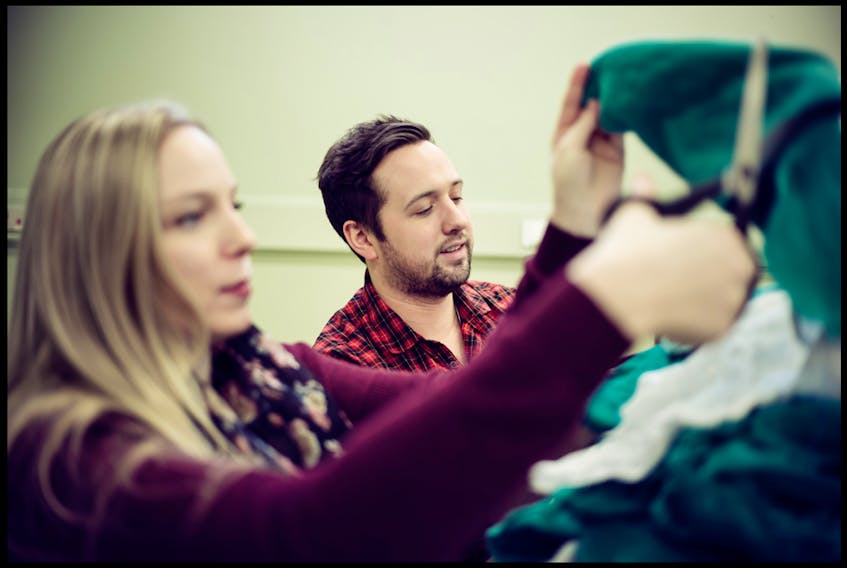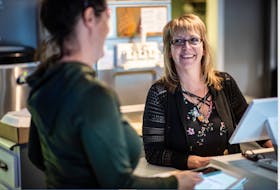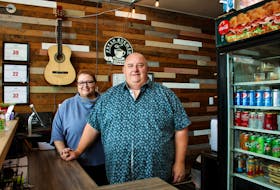While social enterprise is a relatively new concept for much of the mainstream business community, it’s one that is sure to become widespread and endure. That’s why Memorial University is leading the charge when it comes to arming its business graduates with the necessary tools to become the next generation of social entrepreneurs.
A social enterprise is typically defined as one that seeks to achieve social, cultural or environmental goals through the sale of goods and services. They can be for-profit or not-for-profit with profits being directed toward achieving those social objectives. The social enterprise business model is one that is growing, and it’s changing the way business leaders see the future of doing business.
“In today’s business environment, it’s critical that organizations are sustainable and offer value to the communities in which they operate. In order to do that, we need leaders who think creatively, look for innovative solutions and operate with a social conscience,” says Dr. Isabelle Dostaler, dean of Memorial’s Faculty of Business Administration.

Businesses that look only to profits, at the expense of people, social and environmental issues, represent an old way of doing business, according to Dr. Dostaler. To help students understand how to simultaneously serve the planet and support communities through business ventures, Memorial has created a first-of-its-kind in Canada master of business administration in social enterprise and entrepreneurship (MBA-SEE) program.
Set to launch in the fall of 2018, the new MBA-SEE will focus on three pillars of sustainability — people, planet and profits, proving that profits no longer have to be mutually exclusive of social responsibility. And nowhere is this more important than in Newfoundland and Labrador, according to Dr. Dostaler.
While Newfoundlanders and Labradorians are some of the most resilient people in Canada, the province is currently facing many challenges. “These are difficult times and the population is declining. Big efforts need to be made to keep young people here or bring people here from other countries,” she explains.
The MBA-SEE is the right program at the right time, according to Nicole Helwig, manager, Memorial’s Centre for Social Enterprise. “We see social enterprise as a pathway to social innovation, aiming to create sustainable social and economic value,” she says. “The MBA-SEE aims to develop leaders for social change. By cultivating relationships with existing and emergent social enterprises, this program will help strengthen the social enterprise sector in the province.”
No one knows more about the benefits of social enterprises than Lisa Browne, CEO of Stella’s Circle, a not-for-profit organization established on the foundation of social justice. Stella’s Circle includes Hungry Heart Café, a restaurant and catering business, and Clean Start, a commercial cleaning venture, both of which provide training and employment to adults who face many barriers, such as mental health issues.
Browne runs these and other socially responsible ventures in the province as part of Stella’s Circle and in 2017, she was named a Top 50 CEO by Atlantic Business Magazine.
“Social enterprises have been around for some time without people even knowing,” says Browne. “It’s not a new thing, but we are much more educated now about social responsibility and aware of how we can use businesses to help people who need a hand up.”
Browne says that although profit is an important part of any business, none of the initiatives she runs would put those profits before people, which is Stella’s Circle’s main focus as a social enterprise. “We are about giving people an opportunity to become self-reliant and removing barriers that would otherwise stop them from being employed — and I think it makes a big difference,” she says.
Through the Hungry Heart Café, for instance, Browne says the socially responsible café gives people a chance to enter the workforce and receive training, despite not always having previous employment history. “It gives them something to put on a resume and learn skills that can help them get other jobs in the future,” says Browne, something that will allow them to successfully integrate into the community.
According to Dr. Dostaler, embracing social enterprise in Newfoundland and Labrador can also further encourage local residents and even potential immigrants to start their own businesses and ultimately stay in the province. With that goal in mind, she says the MBA-SEE can have a far-reaching impact on a struggling economy in which job creation is the top priority.
As one of the key tenets of social enterprise, the MBA-SEE recognizes that people are the most valuable asset of any successful venture. As such, the program encourages and trains people who may not see themselves as being part of the mainstream business community. “The idea is that you are creating your own job, a start-up or getting involved in social enterprise,” says Dr. Dostaler.
The program opens the door for a much-needed shift in how the business community — and individuals — see social responsibility within the parameters of economic success. The MBA-SEE will kick-start what is inevitably a growing trend to embrace change and will afford Memorial’s students the ability to be that change.
“Our students will gain the skills to manage social enterprises and to create profitable and social business opportunities. Whether they go on to start their own ventures or work in existing organizations, the graduates of this program will be able to help make the world a better place, and that’s something we all need to be working toward,” says Dr. Dostaler.
Ultimately, it is a win-win scenario for everyone.
For more information on the MBA-SEE program, visit www.mun.ca/mba-see.









